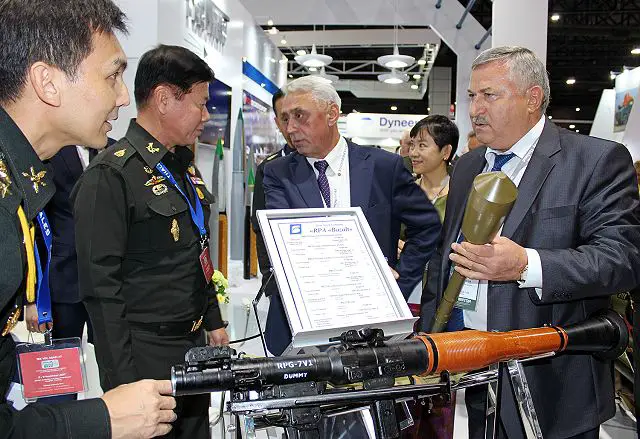Breaking news
ROSTEC Russia industry would like to boost its business activities with India China and Japan 11612154.
|
|
|||
|
Defence & Security Industry News - ROSTEC
|
|||
|
|
|||
| ROSTEC Russia industry would like to boost its business activities with India China and Japan. | |||
|
The investment arm of Rostec Corp. is focusing on its Russian businesses that may find demand in markets such as India, China and Japan, according to the chief of the investment division. To boost the value of some of Rostec’s hundreds of businesses and improve management, the holding company established RT-Business Development, led by former Swiss hedge-fund manager Andrey Korobov.
|
|||
|
|
|||
 Russian companies present military equipment at Defense Exhibition in Thailand. Russian companies present military equipment at Defense Exhibition in Thailand. |
|||
|
|
|||
|
Andrey Korobov. is aiming for a 50 percent jump in the value of the assets to more than $1.5 billion next year, Korobov said in an interview with Bloomberg in Moscow.
“Sanctions limit our access to funding for our projects,” Korobov said. The measures are confining Rostec’s main projects to Russia: Korobov visited 40 African countries looking for investment ideas but ended his search after the U.S. and Europe imposed penalties on the company as the Ukraine conflict flared up last year. Rostec is seeking to move beyond reliance on Russia’s mineral wealth. Still, it plans to levy resources to bring in foreign partners and export to meet demand in Asian markets. “It’s time to buy commodity assets because ineffective producers are leaving the market; after that, the trend will change and demand will grow," Korobov said. RT-Development is planning an ammonia and urea plant in Yakutia with India’s Global Steel Holding Ltd. and is working with China Shenhua Energy Co. to build a thermal coal mine in the Amur region. The urea plant will have capacity to produce more than 1 million metric tons per year, which will be shipped to India. Rostec will help secure tax benefits and agreements on gas and transportation fees as the holder of just more than 25 percent in the project, according to Korobov. It isn’t putting up any cash to help cover the almost $1.6 billion project costs, which a group of Indian banks will help finance, he said. For the coal project, the partners may build a utility to supply energy to China, rather than the fuel, Korobov said. China’s northeast faces a coal shortage in five years, making the project timely, he said, citing Shenhua. |
|||


























